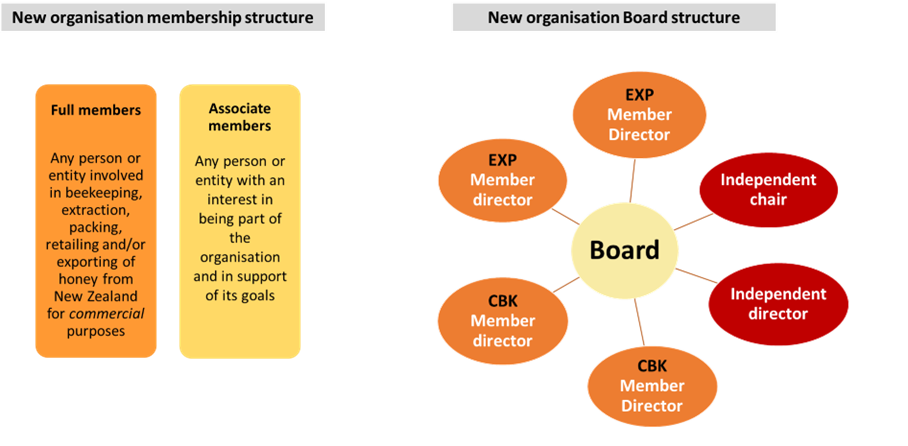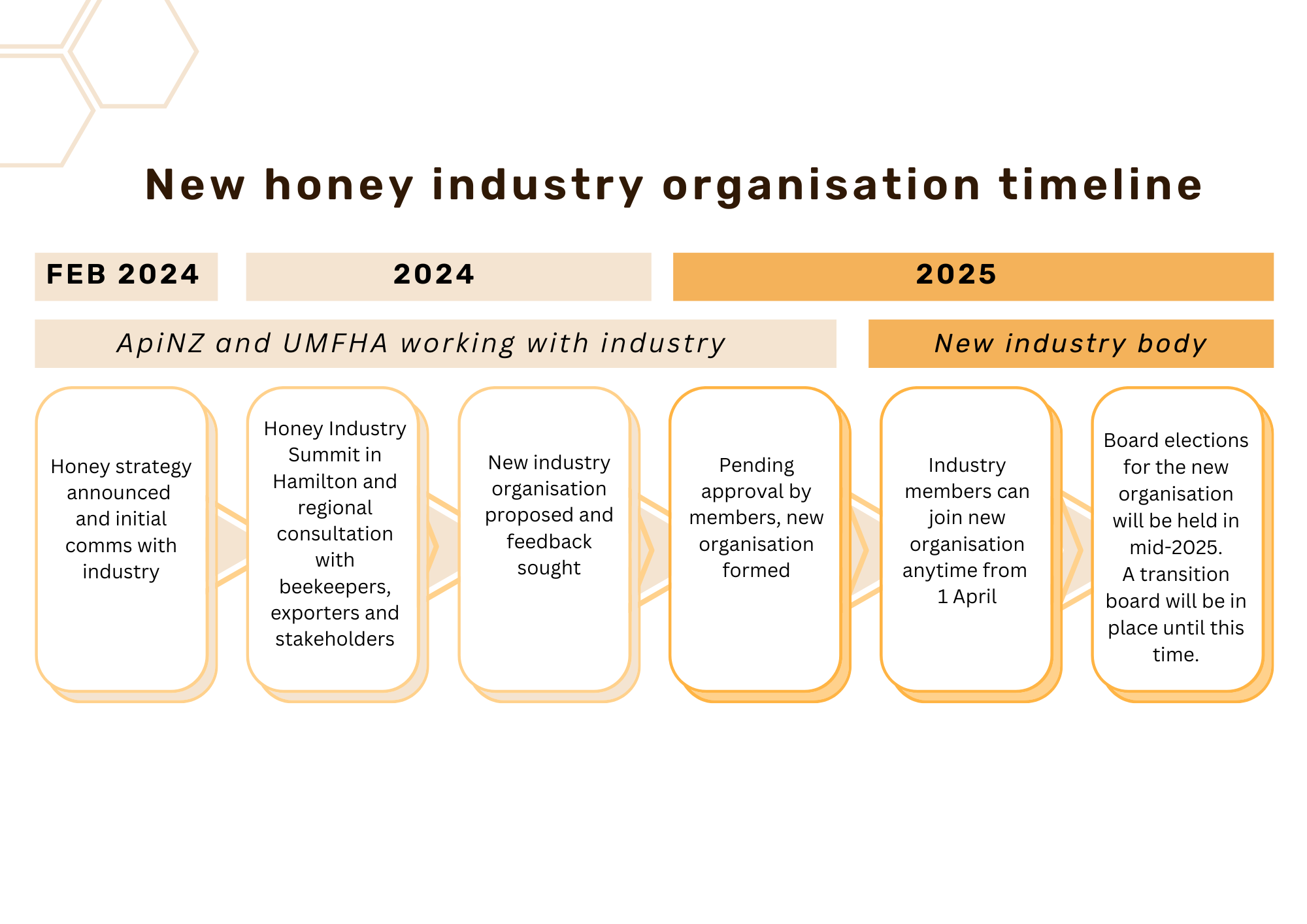EDITORIAL
Karin Kos, CE of Apiculture New Zealand and Tony Wright, CE of the Unique Mānuka Honey Factor Association (UMFHA).
Welcome to the summer edition of The New Zealand BeeKeeper journal. After a cold and wet spring, the recent bout of warm weather has seen some good honey flows in many parts of the country. Let’s hope it settles in for a good season.
In October’s editorial we outlined the main pillars around the NZ Honey Strategy including an aligned industry voice, building consumer confidence, telling our unique story and protecting our bees.
We’ve made good progress since then with the ApiNZ and UMFHA Boards holding meetings with their respective members in late November, sharing plans on a proposal to form a new industry body together.
The decision to unite ApiNZ and UMFHA’s (often complementary) activities into one entity follows a key recommendation in the Strategy calling for an empowered organisation that could speak and act for everyone involved in the New Zealand apiculture supply chain.
Bringing the two organisations together will result in a stronger industry body with expertise and resources that can effectively engage across bee health, biosecurity, quality assurance and standards, while continuing to advocate for industry. The UMF licensing and quality assurance programme will continue unchanged, as will the promotional work to promote the category and help our brands recruit new consumers.
The new organisation will continue to provide ongoing support for national conferences and events, industry focus groups in areas like standards, science, biosecurity and education (plus more), and ongoing communications including regular updates in The New Zealand BeeKeeper.
We have also taken on feedback from commercial beekeepers on the need for the new organisation to better engage with the industry at a regional level, and for regional meetings to provide a feedback loop to the board. This will be a priority.
The proposed organisation, with a working name New Zealand Honey Association, also gives the industry a stronger platform and mandate to build a more sustainable funding model.
As a first step we have shared an outline of the proposed new organisation including its purpose, membership and governance structure, along with a proposal to advance a regulated export honey product levy within the Horticulture Export Authority (HEA) framework. A draft constitution was also provided to members for feedback.
A simplified membership approach
You’ll note that the new organisation will have a stronger, deliberate focus on the commercial operators within the sector. That is based on feedback from commercial beekeepers who want to see the financial viability of the honey industry secured, and for that to be a key purpose. As a result, there will no longer be a non-commercial beekeeper representing hobbyist interests on the Board, as is the case in ApiNZ.
The membership categories and the board structure are summarised in the diagram below with commercial beekeepers (CBK) and exporters/processors (EXP) as Full Members and hobbyists and suppliers as Associate Members.

Funding the organisation
The conversations ApiNZ has had with commercial beekeepers this year have informed how the organisation will be funded in its emerging phase. Many beekeepers told us the ApiNZ fees and levies had become too expensive to the point where existing members struggling with financial pressures were unable to re-join.
As a result, there will be a flat annual membership fee of approximately $300 for beekeepers. Exporters of retail packed monofloral mānuka will also pay an annual membership fee and levy, similar to that paid by current UMFHA member exporters. This is one of the key objectives of the strategy: ensuring those who benefit from the work of the organisation contribute fairly to those outcomes.
There has been some interest from commercial beekeepers in establishing a ‘hive levy’ as a means to fund projects dedicated to beekeeping interests. The new organisation will commit to seeking wider feedback on this and if there is conclusive support, will consider such a levy as a funding option in due course.
For beekeeping clubs, hobbyists and suppliers in the Associate Member category, we also proposing the same flat annual membership fee. However, the journal will remain as a free online resource to anyone (whether you are a member, or not) and we will continue to offer lab discounts to our members, which been popular with beekeeping clubs.
Next steps
The intention is for the new organisation to be active by April 2025. The following diagram outlines the process both ApiNZ and UMFHA will go through to get to that point.

You can read more about the proposal here: https://apinz.org.nz/new-industry-organisation.
In the meantime if you have any questions please don’t hesitate to contact Karin Kos at ceo@apinz.org.nz or Tony Wright at Tony@umf.org.nz

Karin Kos, ApiNZ Chief Executive

Tony Wright, UMFHA Chief Executive
